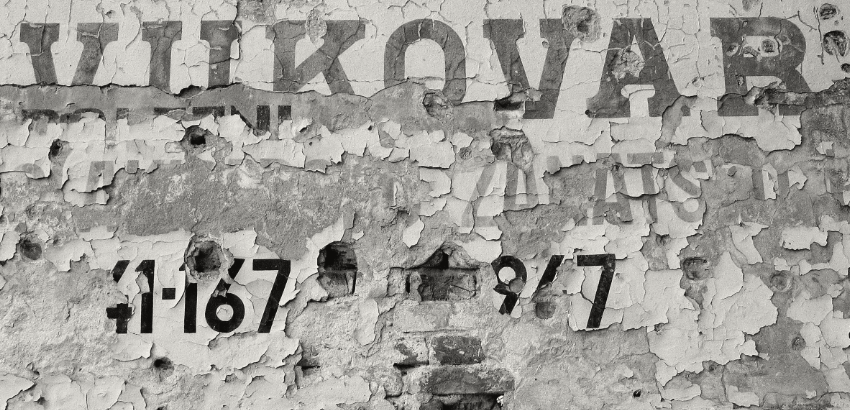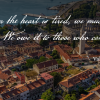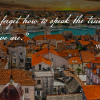
Published: October 31, 2000
View the Original Newsletter: Iskra-69-70.pdf
About This Issue
This double issue of Iskra stands as one of the most powerful editions to date.
Editor Valentina Krčmar dedicates much of it to Vukovar—the city that became the heart of Croatia’s suffering and defiance. Through her moving Motrišta column and a collection of national and community news, she explores the meaning of memory, honor, and truth in a time when the country is still defining its moral identity.
Editorial: “Deklaracija o Domovinskom Ratu” — The Declaration of the Homeland War
Valentina begins with reflections on the Croatian Parliament’s Declaration on the Homeland War, acknowledging that while she and most Croatians never needed such a declaration to affirm what was already sacred, it serves as an important record for future generations — those too young to remember, and foreigners who still fail to understand.
For her, the Homeland War (Domovinski rat) is not up for political debate — it is holy ground:
“The Homeland War is sacred. Every defender is someone before whom we rise with respect.”
But after watching documentaries “Svjedok” and “Ovčara”, she confesses that perhaps the declaration is necessary — to confront the painful question: Why did Vukovar fall?
She recalls how the defenders of the city were abandoned, how reports from Vukovar were censored by Croatian Television during the siege, and how even now, the truth is not fully told.
“Vukovar was systematically erased from public view, even as its people cried for help.”
Her heartbreak grows when describing her husband’s visit to Vukovar — the silent ruins, the broken gravestones, the neglected road to Ovčara, and the vandalized memorial with missing letters carved into its stone.
Her words become both grief and accusation:
“What kind of people are we if we allow the monument to our heroes to stand alone, without an honor guard, forgotten by those who should protect it?”
Valentina’s plea is clear — that Ovčara should be a sacred site guarded by Croatia’s youth, a place where every generation learns respect for sacrifice.
“To stand at Ovčara should be a privilege few deserve.”
She ends with sorrow but conviction: Croatia must answer the question — Why did Vukovar fall? — if it truly wishes to honor its defenders.
National and Political News
This issue includes extensive national reporting, reflecting Croatia’s political transition under President Stjepan Mesić and Prime Minister Ivica Račan:
-
Mesić declares: “With Yugoslavia, it is finally over.”
-
Račan reports an increase of 40,000 employed citizens.
-
Parliament debates constitutional reform, dividing opinion between the SDP and HSLS parties over presidential powers and secret services.
-
The ICTY expresses shock over images from the Škabrnja massacre.
-
Former Prime Minister Ivo Sanader gives an in-depth interview about Croatia’s political direction and the legacy of the HDZ.
Across all sections runs a deep concern that Croatia’s sacrifices might be trivialized in the name of progress.
Community and Culture in Canada
Kordunaši Bring Joy to Oakville
Valentina recounts the Stupanje Konoplje na Kordunu evening in Oakville — a vibrant celebration of folklore and charity organized by the Kordun Society.
Guests from Cleveland joined local performers to reenact harvest traditions through song, dance, and laughter, raising funds for two children in need of medical care.
“It was not just a show — it was a living connection between generations.”
She praises the event for its authenticity and community spirit, calling it one of the happiest evenings she’s attended in years.
AMCA’s Autumn Outing and Marulić Symposium
The Association of Croatian Alumni (AMCA) hosted an autumn nature walk in Milton’s Hilton Falls Conservation Area, followed by a successful annual meeting and cultural lecture series.
Later that month, AMCA and the Croatian Academy of America co-hosted a symposium on Marko Marulić at the University of Toronto. Scholars from Croatia and North America explored Marulić’s role as the “father of Croatian literature.”
Despite the brilliance of the presentations, attendance was disappointingly low — a fact Valentina laments as a missed opportunity for the community to support its own intellectual achievements.
“It was one of the finest events of the year — and one of the loneliest.”
Cultural Pride and Artistic Achievement
Artist Ilija Vranešić thanks the community for their support following his successful exhibition at the Neilson Park Gallery. His heartfelt letter of gratitude lists those who helped, including Valentina herself, and reaffirms his belief in art as a bridge between homeland and diaspora.
Meanwhile, architect Josip Milčić receives the Ottawa Architectural Conservation Award of Excellence for his design of the Croatian Embassy in Canada — a symbol of pride for Croatians abroad.
“To see the šahovnica flying in the Ottawa breeze is to feel a piece of home.”
Health & Awareness
Dr. Darko Desaty contributes a comprehensive feature on viral hepatitis — explaining its types (A, B, C, D, and E), modes of transmission, and prevention through vaccination.
He also reports that Ontario is now offering free influenza vaccines to all residents, aiming to reduce winter hospitalizations.
Practical and informative, his column continues Iskra’s tradition of pairing patriotism with public health and well-being.
Poetry & Reflection
A touching poem titled “Moja majka, moja ljubav najveća” (“My Mother, My Greatest Love”) closes the issue. The verses speak of love that continues beyond death — a fitting metaphor for Croatia’s enduring connection to its past and its people.
“She no longer hears my song, but she feels it.”
Closing Words
Valentina ends the double issue with a simple message of gratitude and remembrance:
To readers who understand the challenges of publishing Iskra while balancing family and community, she thanks them for their patience — and reminds them to cherish freedom, vote, and remember those who gave everything for it.
“On All Saints’ Day, we remember our defenders — and we carry them forever in our hearts.”




